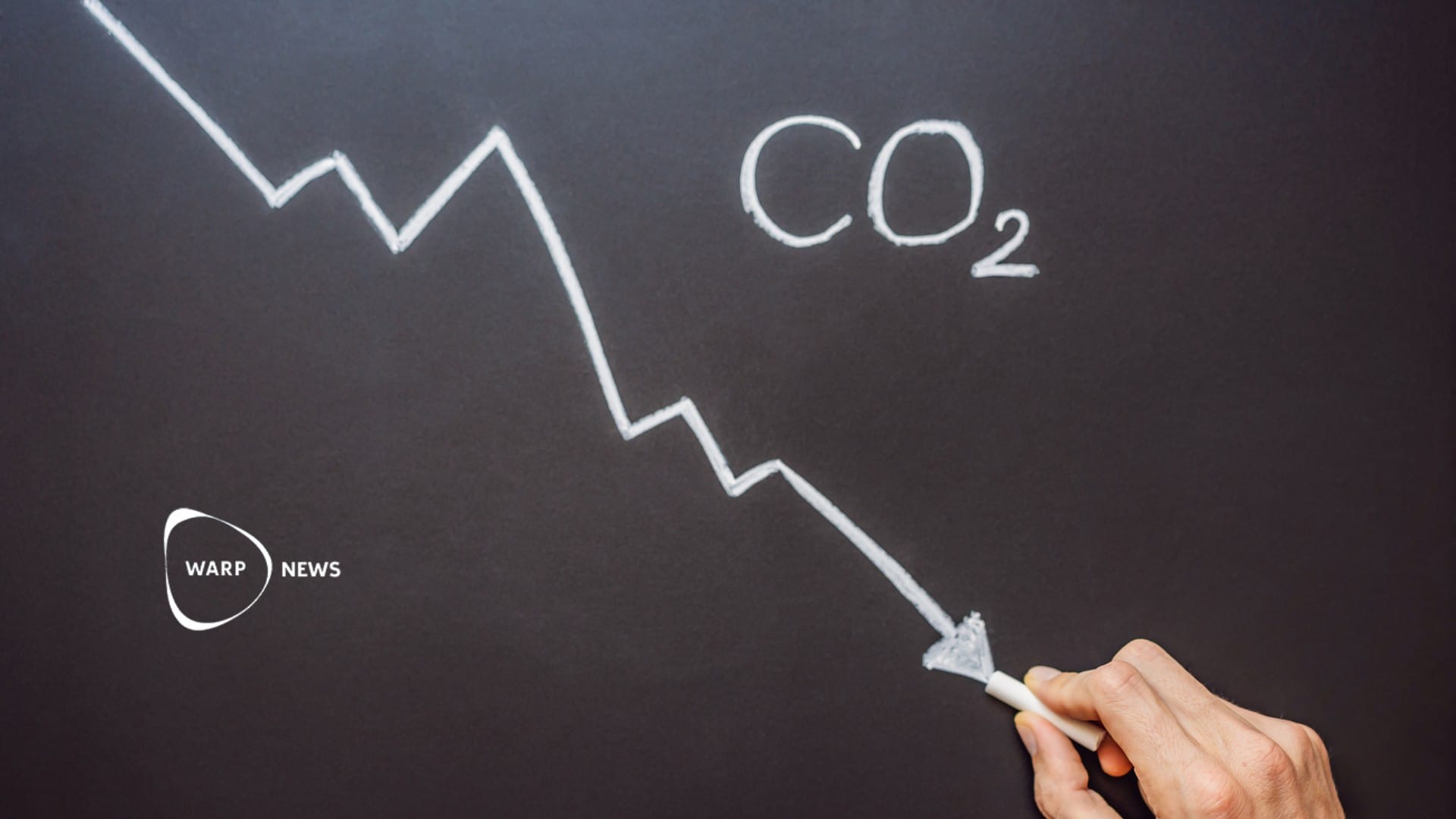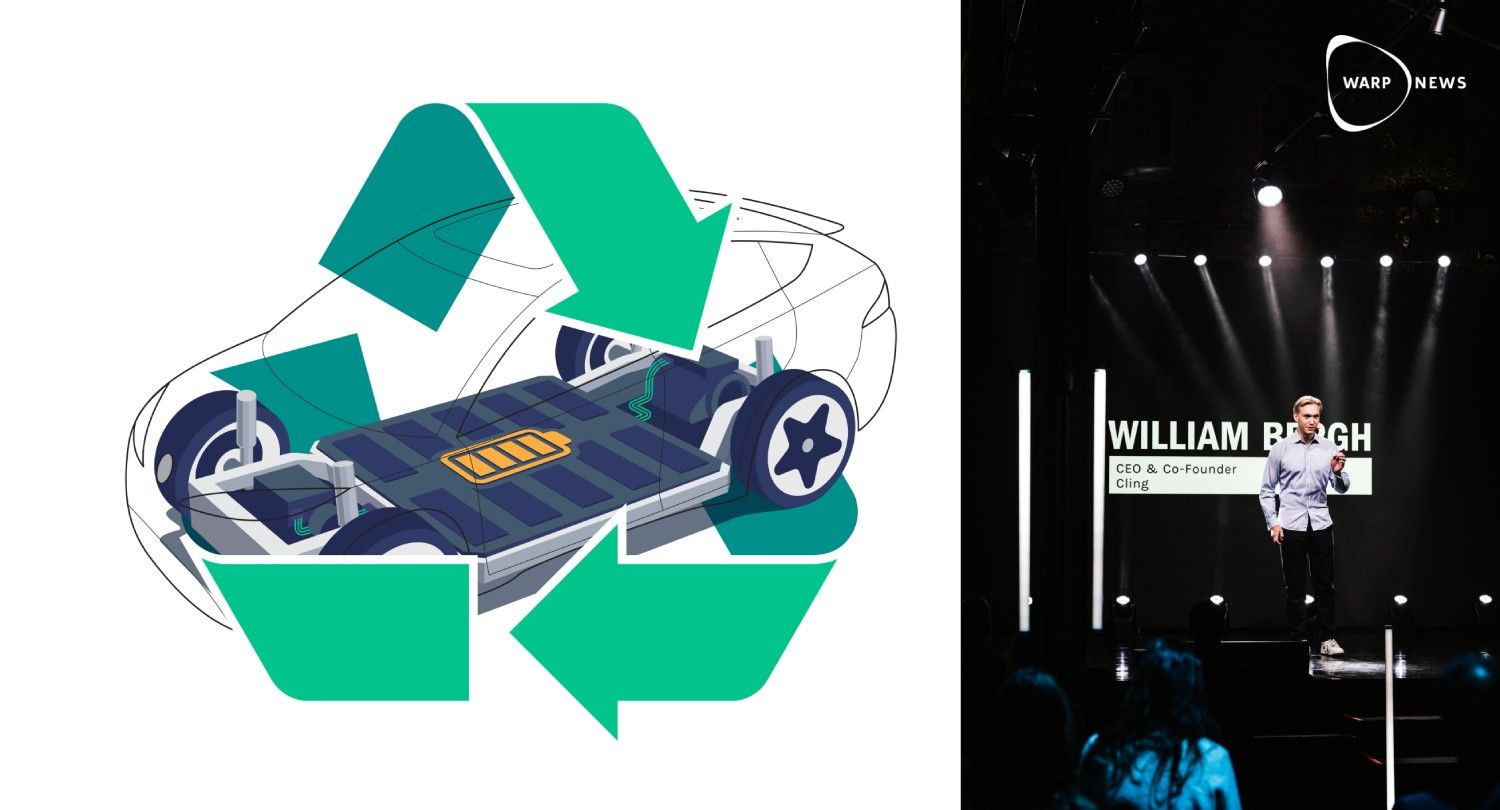
👊 "We want to build the world's largest digital mine"
A large industry for recycling electric vehicle batteries is emerging. William Bergh, has founded Cling Systems, which matches sellers of recycled batteries with buyers. He tells Warp about his entrepreneurial journey and shares three business ideas that are waiting to be realized - maybe by you?
Share this story!
The world is transitioning to electric cars. This means that the amount of batteries is increasing significantly, and an extensive recycling industry is emerging.
"Waste is a raw material in the wrong place," says William Bergh, founder, and CEO of Cling Systems, and continues: "We want to build the world's largest digital mine."
Today, we dig up minerals and metals from the ground and put them into products. If we would be better at recycling and reusing, there will eventually be enough material above ground to eliminate the need to mine for more. That's what William Bergh means when he says 'digital mine.'
"We aim to replace the linear economy by introducing the intelligence required in the system to make it circular."
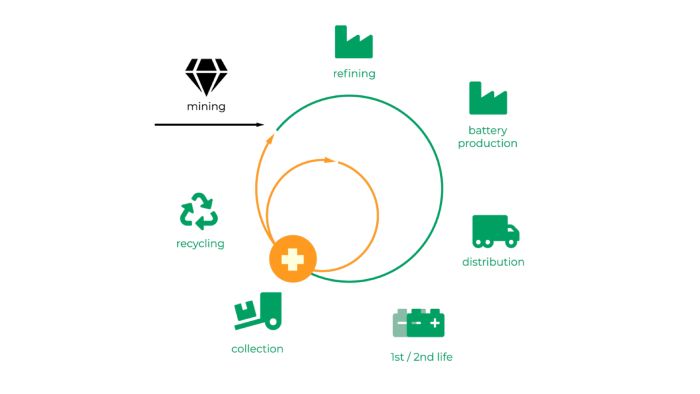
"Because you do it best in Hawaii"
Of course, that is not easy. On the contrary, it isn't straightforward. Something William Bergh has gradually realized in recent years. After high school, he moved to Hawaii to study environmental science.
"Because it's best done in Hawaii," he says smiling.
It became clear to him that most of the emissions come from energy. Therefore, the next move was to Skåne, Sweden, where he studied energy technology at Lund University.
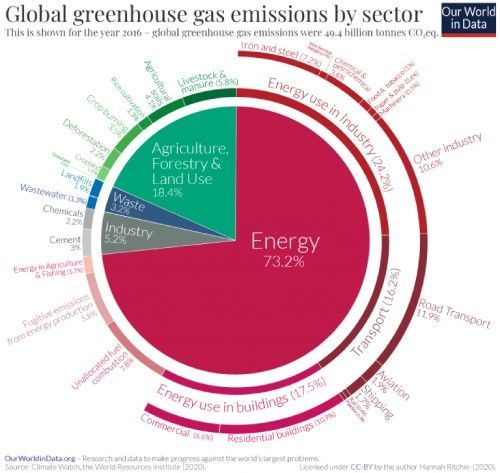
He participated in Lund Formula Student, where a racing car is built every year. William Bergh became responsible for making the battery pack for the vehicle powered by electricity. Then he got in touch with the battery manufacturer Northvolt and learned how they design batteries to facilitate easy recycling.
Most useful when collecting electric car batteries
Gradually he realized that the solar and wind technology, where he first aimed to work, was already well developed. He thought that his talent would be of best use within battery storage and, more specifically, recycling.
"From a technical perspective, it's super difficult to recycle batteries, but the biggest problem lies in the collection," describes William Bergh.
Writing his master's thesis at Northvolt, he chose to focus on recycling batteries from electric cars.
What made you start your own business instead of applying for a job at Northvolt directly?
"I saw that the main problem the industry was facing was the collection. There I was able to maximize my benefit to the world. But also, of course, because it's a lot of fun being an entrepreneur."
"I have a long list of business ideas, which I've been exploring since I was young. All the same, I was unsure at first. I went through my diaries from when I started at Cling. I wrote that I'd give it two weeks before I would apply for a job at Northvolt, then one month and two months passed, three months - and then applying for another job was out of the question", he says.
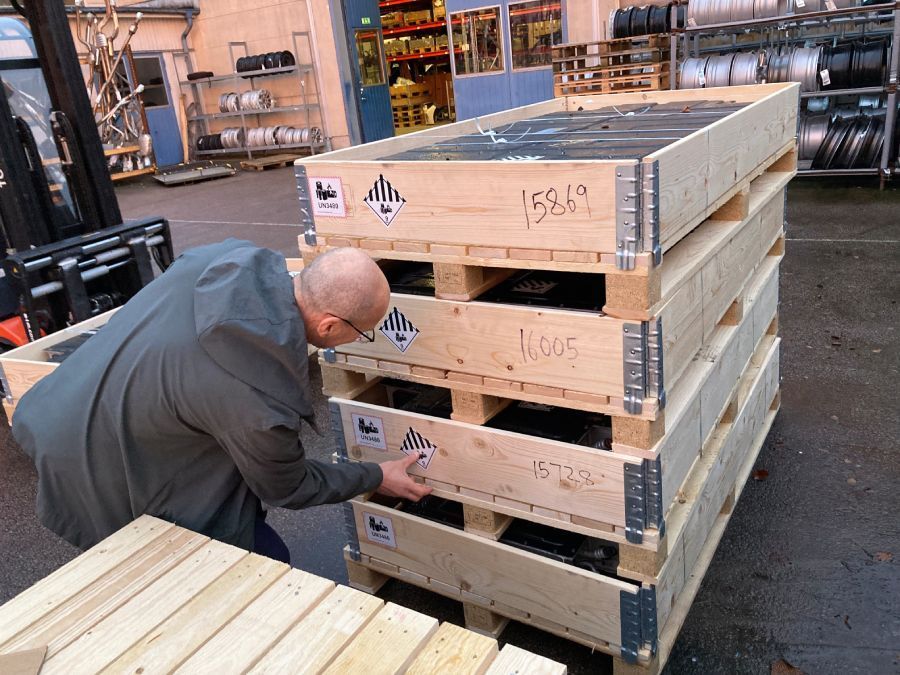
Time to accelerate
That was probably the right decision. In December, his company Cling Systems received SEK 21 million in venture capital, and during the summer of 2021, it went through the Norrsken Impact Accelerator. When I ask how he experienced it, William Bergh gets something ecstatic in his eyes.
"Incredible. Magical. The support from Norrsken was crucial for where we are today. I can't say enough good things about them."
What does Cling Systems do?
So, more specifically, what does Cling Systems do? They match sellers of recycled electric car batteries with buyers. The battery is no longer good enough for a car but works in another context, such as stationary storage, for instance.
"It's a new industry that is emerging, repurposing, or second life. Electric car batteries are taken in and converted to stationary storage, and there is a will to pay for the batteries".
Some companies disassemble used cars and sell the parts on the other end. For them, the electric car battery has so far been a waste that they have to pay to dispose of.
The problem is that there are so many car disassemblers and so many different types of batteries and uncertainty about what a battery is worth. There is a need for a market that can regulate price and match supply with demand.
"This is where we come into the picture," says William Bergh.
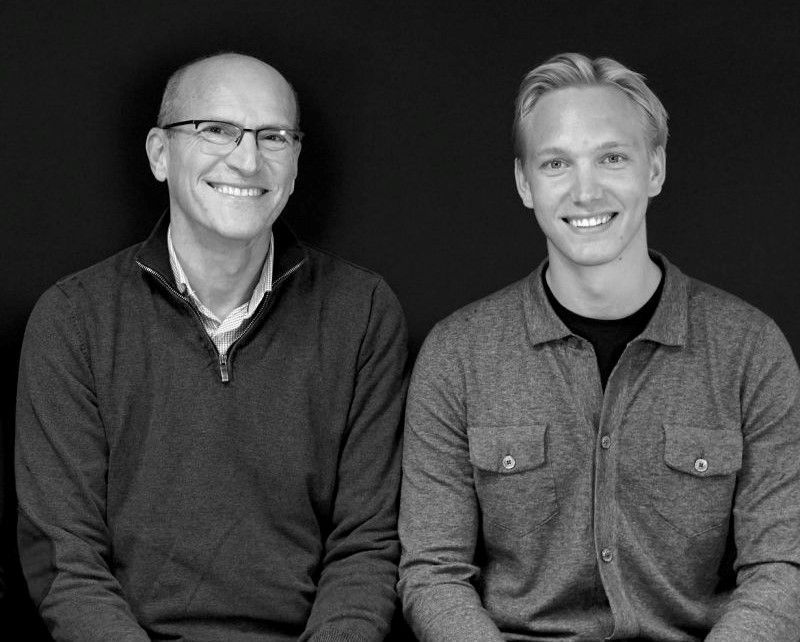
Help Cling Systems succeed
How can Warp's community contribute to your success?
"What we do is complex and difficult to explain. All help we can get to specify and explain is welcome".
In addition, Cling will expand the team and hire more staff during 2022. They are primarily looking for software developers and salespeople.
Three business ideas for the battery industry
What are other business ideas in the industry for us in the Warp community to explore further?
William Bergh quickly lists three ideas.
- Disassembly of batteries. There is currently no well-functioning system for that.
- Logistics for shipping batteries. It is hazardous waste, and bureaucracy is complex and time-consuming.
- Diagnostics and testing of batteries. Batteries come in many shapes, with different contents, and are widely used. Simple tools are needed to test them.
Big problems equal ample opportunities.
Climate change is, of course, a significant problem for humanity and the planet. However, when we transition away from the fossil, tremendous opportunities arise. They can be challenging because of the pessimism surrounding the problem and the significant negative headlines that dominate the news. But a fact-based optimist looks past it and sees the opportunities beneath.
Here you can read more about the opportunities with recycling:
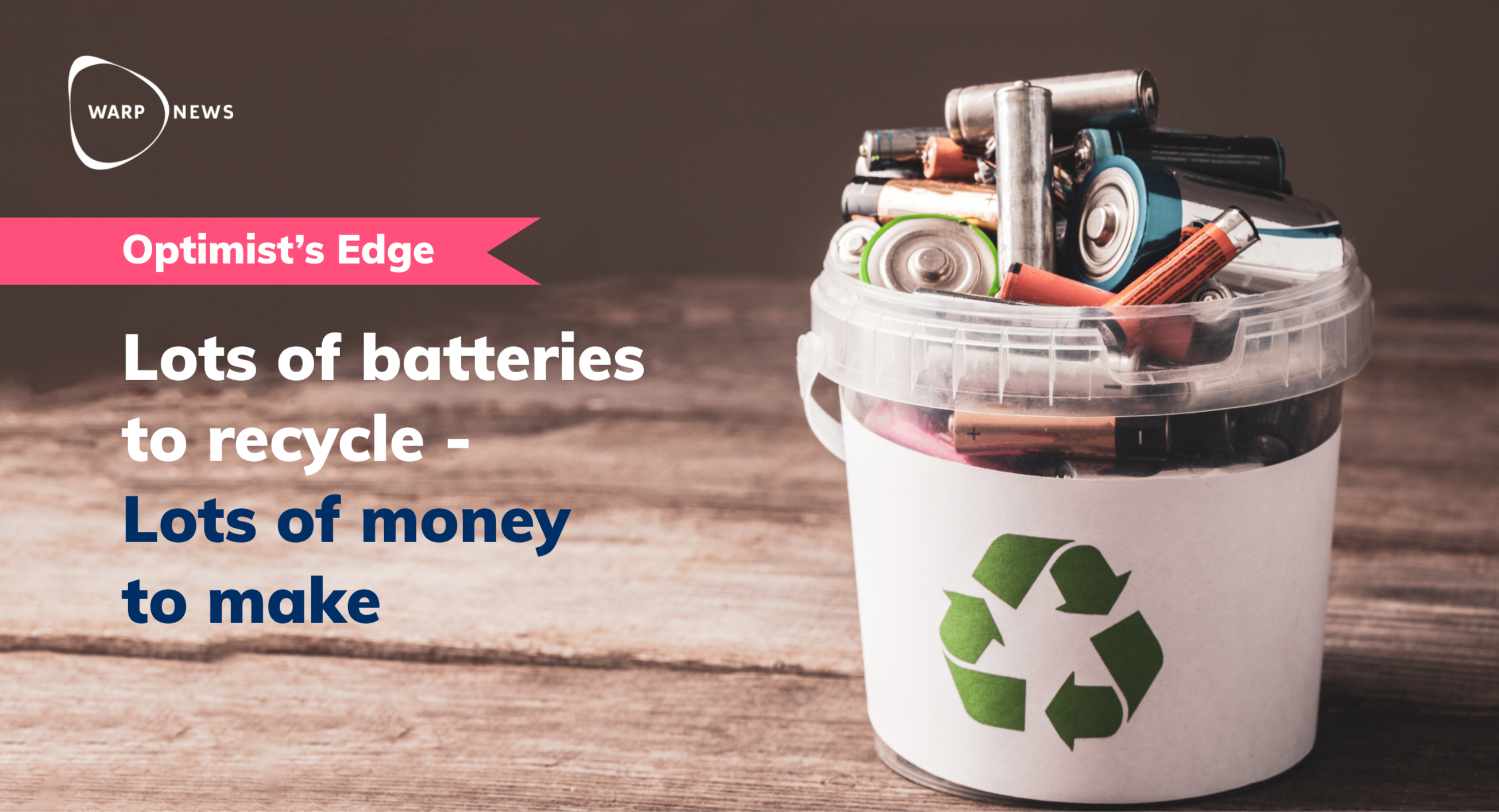
Mathias Sundin
By becoming a premium supporter, you help in the creation and sharing of fact-based optimistic news all over the world.

